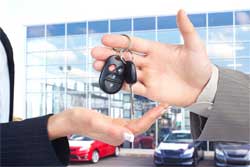EQUIPMENT FINANCE AND LEASING

Hire Purchase
A hire purchase used to pay for goods over a period of time – usually one-to-five years, with ownership retained by the financier until the hire purchase term is complete. At the end of the hire purchase term the title of the goods automatically passes to your business.
Repayments on a hire purchase can be quite flexible and can be varied depending on the "balloon" you to have at the end of the hire purchase term. This balloon can be between 10 and 40 per cent of the value of the goods. You will need to have the nominated balloon payment amount by the end of the hire purchase term to complete your contractual requirements.
Chattel Mortgage
A chattel mortgage is similar to a residential mortgage, except the vehicle or equipment is the security rather than property. With a chattel mortgage, the ownership of the goods is yours on purchase and a mortgage says over the goods until the loan is repaid in full.
A chattel mortgage is particularly useful for any business operating on a cash method of accounting, including companies, partnerships and sole traders, as it allows you to claim the GST component of any vehicles or equipment you purchase upfront.
A chattel mortgage is generally a fixed interest loan with a one-to-five year loan term. As with a hire purchase agreement, you may choose to make a balloon payment or lump sum payment at the end of the loan term, reducing your ongoing repayment amount.
Leasing Finance
With leasing finance, a leasing company takes ownership of vehicles and equipment and then leases them out to your business for an agreed repayment amount and term, usually two-to-five years. Leasing finance may be ideal when you need vehicles or equipment that has long effective lives.
As a leasing finance agreement is a fixed rate, fixed term contract and lease payments are also usually tax deductible and you should be able to claim the GST proportion of your payments for tax purposes.
At the end of a leasing finance period, you can often choose to purchase the vehicle or equipment at a price specified in your original leasing finance contract.
You may also be able to claim some tax benefits, including depreciation and the interest costs. As with all other types of business finance, you should thoroughly investigate the taxation and accounting implications with your Accountant.











